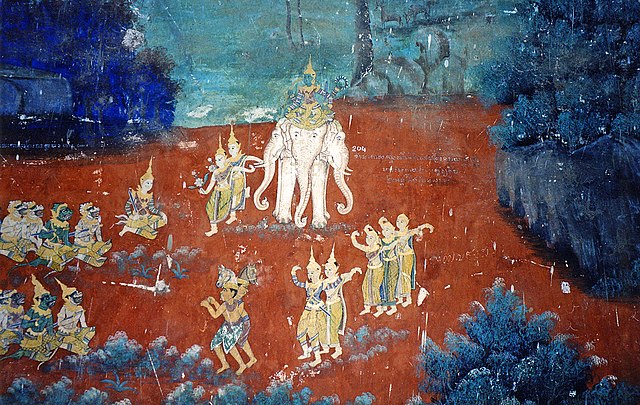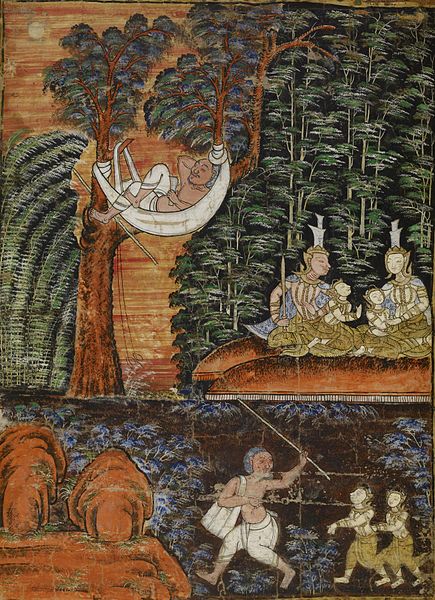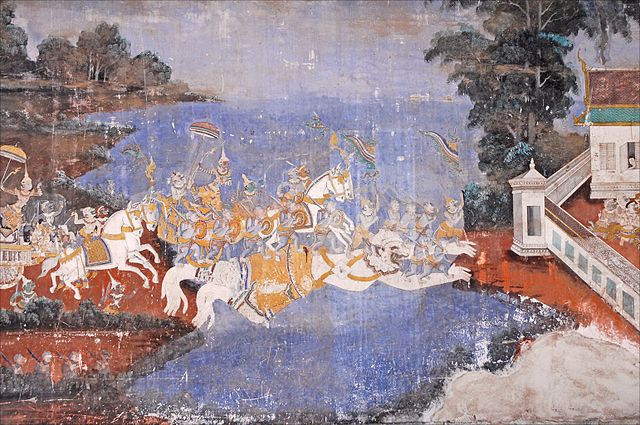
On January 31, the German-Southeast Asian Center of Excellence for Good Governance and Public Policy (CPG) at the Thammasat University Faculty of Law, hosted a seminar “Remembering Holocaust,” about historical genocides. As its website explains,
CPG is a joint institute of Johann Wolfgang Goethe University Frankfurt, Westfälische Wilhelms University Münster, Passau University, and Thammasat. It is funded by the German Federal Foreign Office with administrative support from the German Academic Exchange Service (DAAD). CPG is an academic institution, think tank, and provider of advisory services… CPG is also a center for the promotion of knowledge on German and Thai culture, law, and governance, as well as of Europe and Southeast Asia as integrated regions. Regularly, we offer scholarships for German language courses at Thammasat University, as well as for our academies in Germany, Thailand, and other countries. Introductory courses to German law taught by CPG members are permanently integrated into the graduate and undergraduate curriculum at the Faculty of Law, Thammasat University.
Henning Glaser, Director of the CPG, editor-in-chief of the European – Asian Journal for Law and Governance (EAJLG), and lecturer at the Faculty of Law, Thammasat University, introduced the afternoon’s speakers. As Ajarn Henning observed, the Holocaust and the Cambodian genocide are shaping events in modern history. The issue they raise is remembering, how do people deal with such events. Ajarn Henning noted that remembering is not an automatic natural activity like breathing: Memory is selective and constructive. The way societies and individuals remember things are often similar. We want to focus on societies and how they keep the memories of horrible events. Remembering the worst things that humans can do to each other is always a challenge…Those who want to be remembered as victims are not always directly interested in getting criminal justice or reparations, but acknowledgement and respect. It’s fascinating to see how societies engage with memories.

After these insightful preliminary comments, the speakers gave their presentations. They included Ajarn Felix Pülm of the German Department, Silpakorn University, Sanam Chandra Palace Campus.
As the website of the DAAD – German Academic Exchange Service (Deutscher Akademischer Austauschdienst) – Information Centre Bangkok details,
the bachelor programme in German studies in the German Department of Silpakorn University Nakhon Pathom is one of the largest and most successful in Thailand. In 1968 The German Department was established by Prof. Dr. Čhēttanā Nākwatchara… Currently about 150 students are studying German, major and minor, at the German Department. The lecturers include five Thai and one German native as well as a German intern.
The TU Libraries own three books in Thai language with contributions by Ajarn Čhēttanā Nākwatchara. Ajarn Felix spoke with much detail and useful information about Memory Culture on World War II and the Holocaust in Germany – Turning Points and Current Challenges. After earning a bachelor’s degree in history and politics at the University of Kassel, Germany, Ajarn Felix received a master’s in public history degree at the Free University of Berlin. Qualified in creative writing, with and without historical reference, in manual and digital forms, Ajarn Felix has experience in historical education work and radio and television production. He is particularly interested in German colonial history, the ress and censorship during the Third Reich, the time in German history from 1933 to 1945, when Germany was under the dictatorship of Adolf Hitler through the Nazi Party (NSDAP). Under Hitler’s rule, Germany was transformed into a totalitarian state in which the Nazi Party controlled nearly all aspects of life. He is also interested in researching and understanding the experience of the Second World War in Thailand, especially in multi-layered and differentiated forms of memory such as films, museums, and literature, as well as German-Thai relations over the years. Among his writings is an analysis, The Bridge on the River Kwai – Memory Culture on World War II as a Product of Mass Tourism and a Hollywood Movie.
As all Thais know, during World War II the Japanese army built a railway that connected Thailand and Burma, to create a supply route for war campaigns. Many Allied prisoners of war and Asian laborers forced to build the railway died during the project. After the 1957 Hollywood movie The Bridge on the River Kwai, tourists arrived in Kanchanaburi expecting to see authentic locations where the film was made. To please the tourists, what Ajarn Felix calls a
diversified memory culture developed, often ignoring historical facts and geographical circumstances. This memory culture includes commercial and entertaining aspects as well as museums and war cemeteries.
Another presenter was Ajarn Daniel Polomski of the Institute of Human Rights and Peace Studies (IHRP), Mahidol University, Nakhon Pathom. Ajarn Daniel spoke on Refusal Or (Re-) Construction: The Current Status Of Collective Remembrance Among Urban Cambodian Youth.
As its website informs the reader,
IHRP is uniquely interdisciplinary and is redefining the fields of peace, conflict, justice and human rights studies, in the Asian Pacific region and beyond… [its] projects focus on facilitating cooperative efforts to deal with the conflicts through opening space for dialogue at all levels, reduce the violence and to identify needs of community and society. Also, the projects provide input for new public policies, in order to transform conflicts and build just and peaceful society. Our focus remains on social and political realities at the community, national and international levels. The IHRP is committed to the advancement of human rights and peace by educating human rights and peace practitioners, promoting outreach programs to community and international organizations, and conducting cutting edge research on important issues.
Ajarn Daniel noted some of the difficulties between generations in interpreting and understanding the legacy of the Cambodian genocide between 1975 and 1979, during which an estimated 1.5 to 3 million Cambodians died or were killed by the Khmer Rouge regime. Ajarn Daniel is currently enrolled in the graduate studies program at Mahidol University. He earned his bachelor’s degree in Southeast Asian studies and sociology at the University of Hamburg, Germany, focusing on conflict resolution and political historiographies of different stakeholders in Southern Thailand. His interest in critical theory and social science research helped him aspire to critical perspective on human rights issues. He has tutored students at Khon Kaen University. Among his current interests are research projects on societies in transition, and the design of justice-seeking mechanisms in post-conflict societies throughout Southeast Asia. Ajarn Daniel expressed the view that the relevance of textbooks and memorial sites is totally contested in Cambodia. I argue that Cambodian youth is in the process of constructing their own approaches to memory… One obstacle to remembrance is the educational system. Not everyone who graduates high school knows about the Khmer Rouge. The teachers themselves have no training on the subject. They rely on personal accounts…Another obstacle is intergeneration conflict, where granparents use stories of the past to scold young people, leading to negative feelings… Still another obstacle is the internalization of fears between old and new generations. Older generations feel that the Khmer Rouge could return.
Ajarn Daniel concluded that memory culture in Cambodia is generally a group effort. Memory is strongly contested, but the young generation has taken it into their own hands.

(All images courtesy of Wikimedia Commons)
